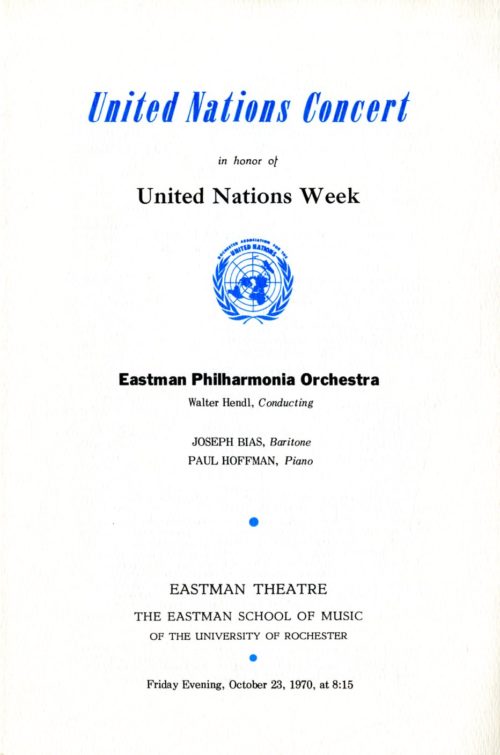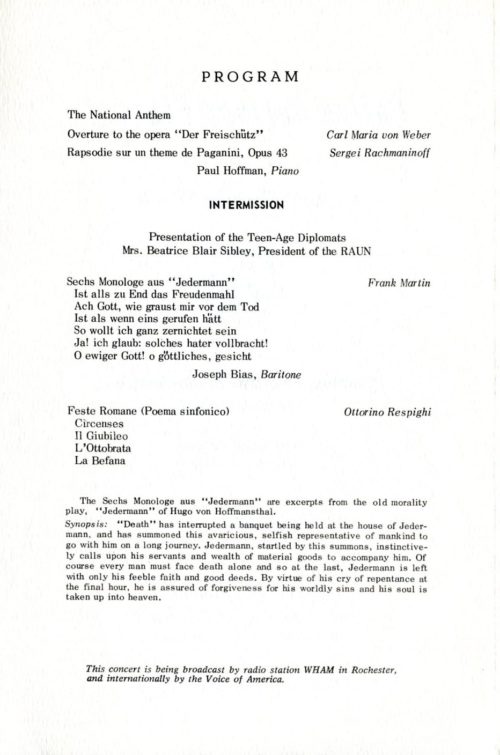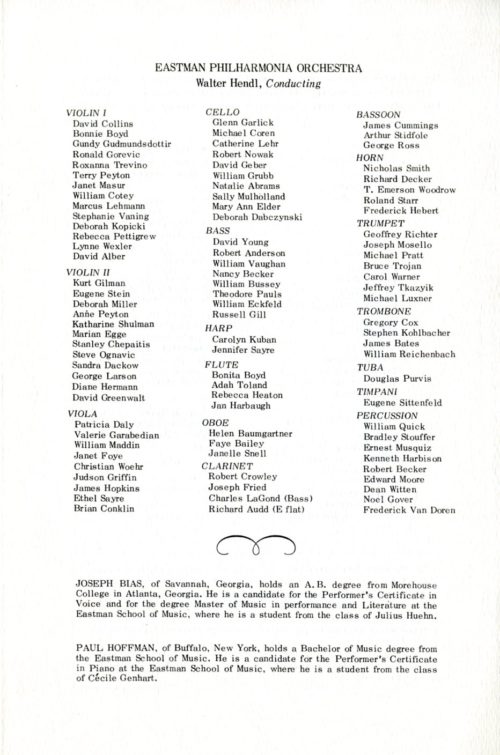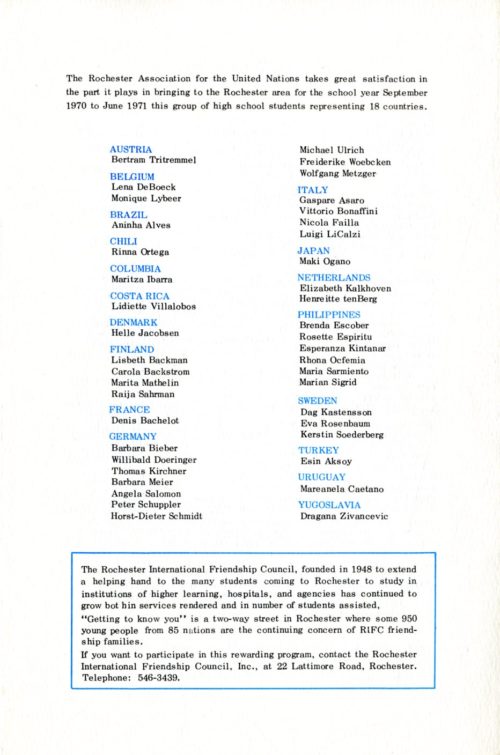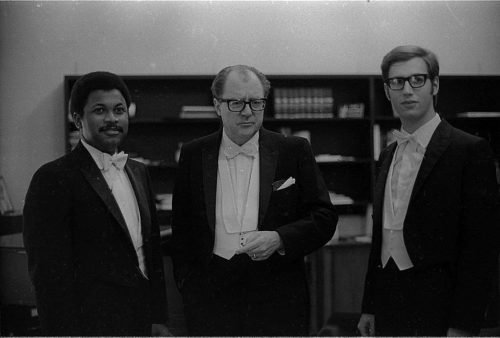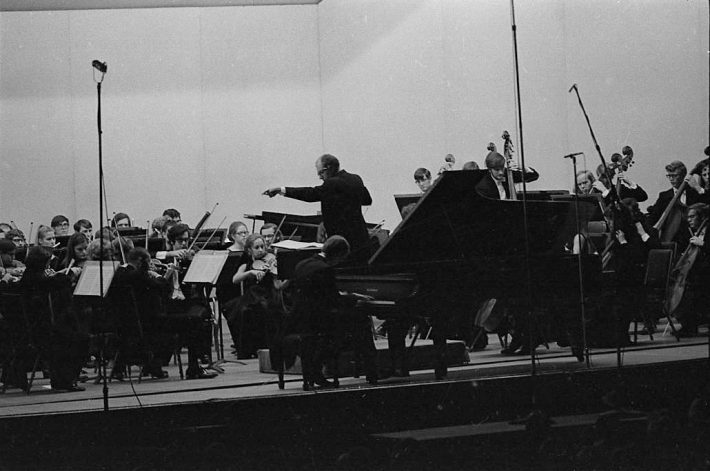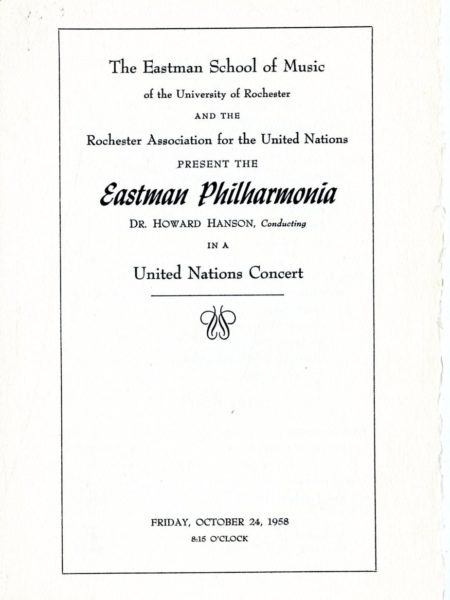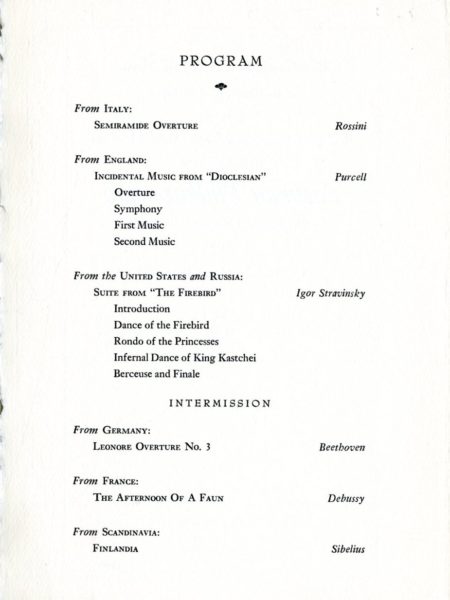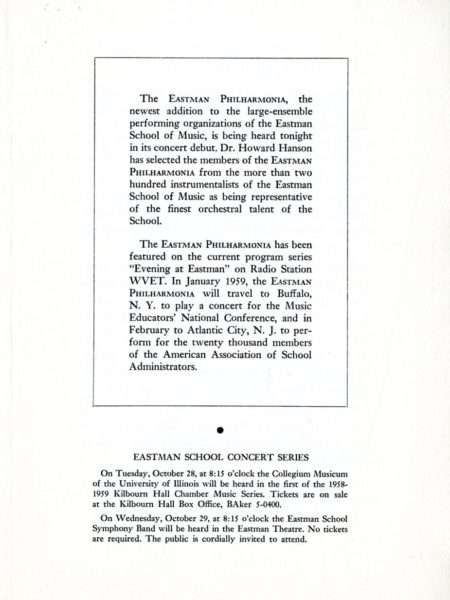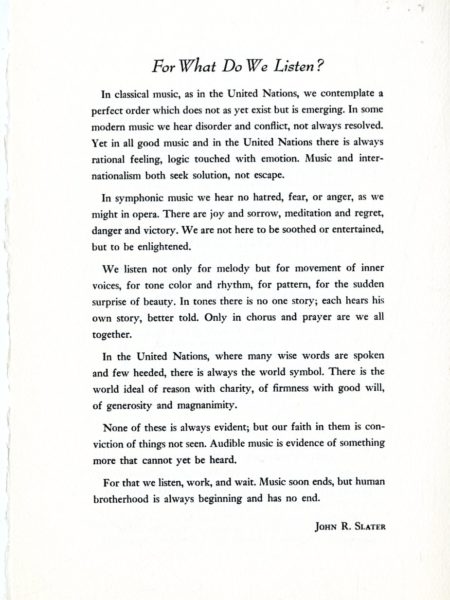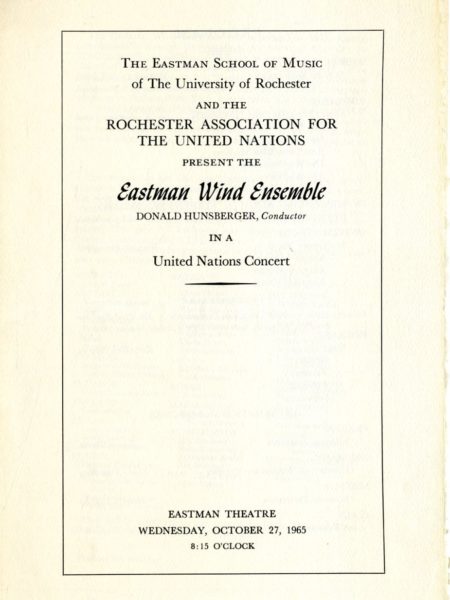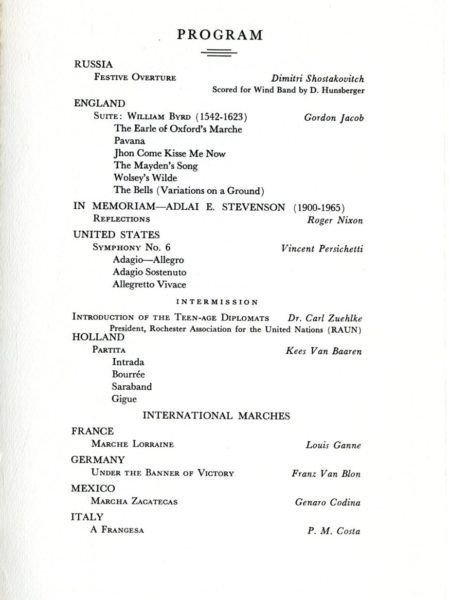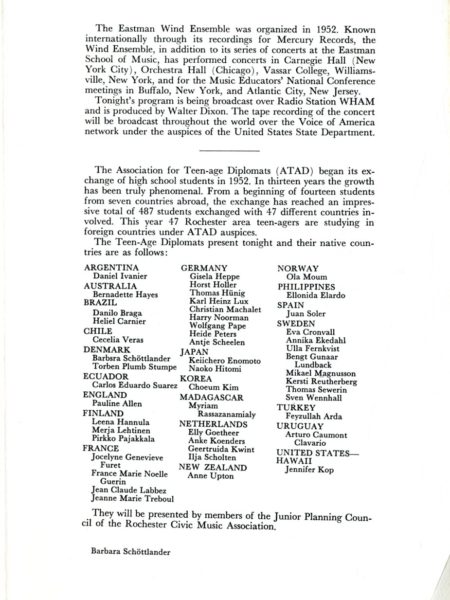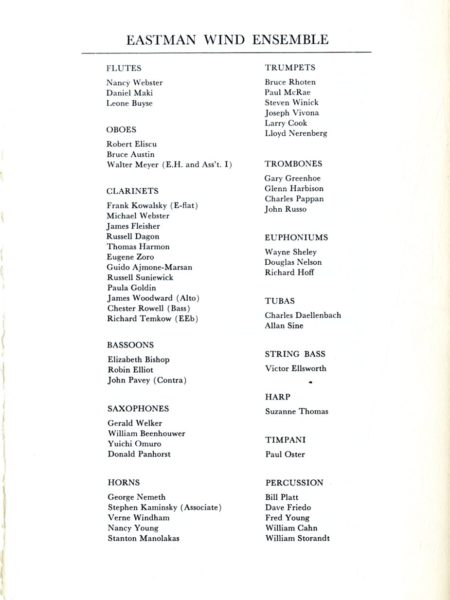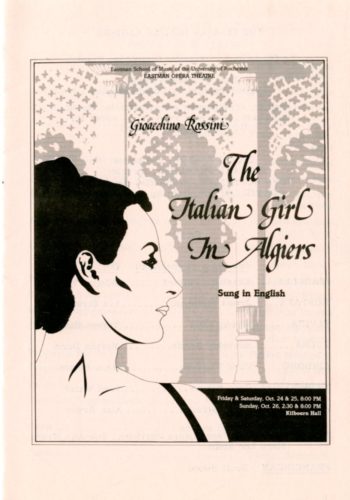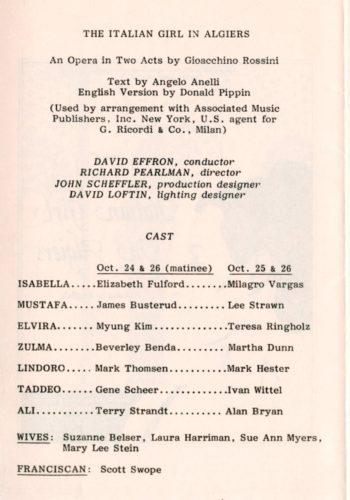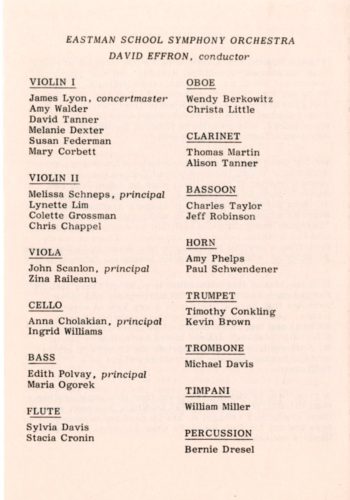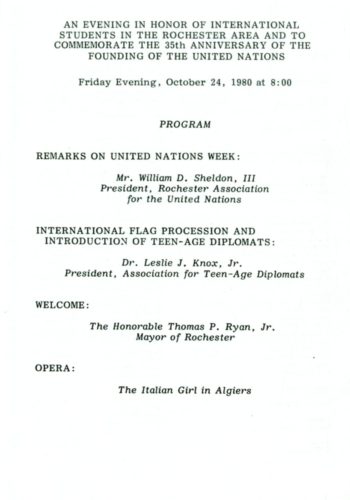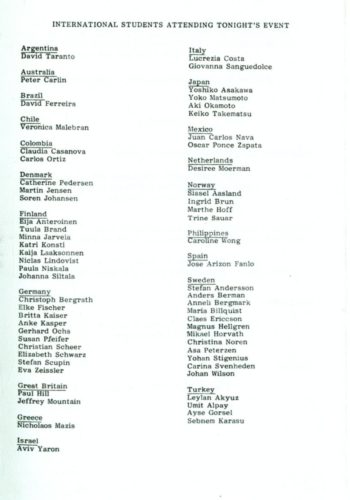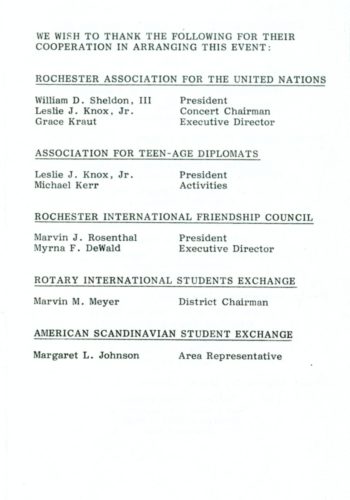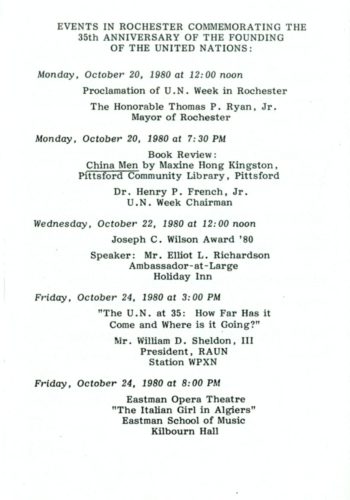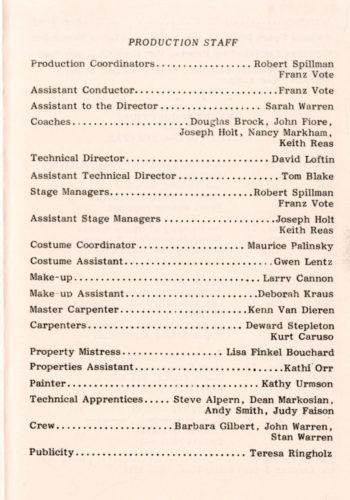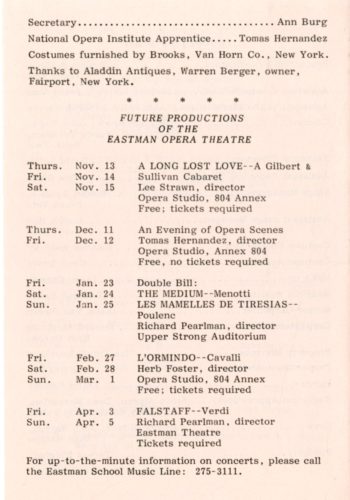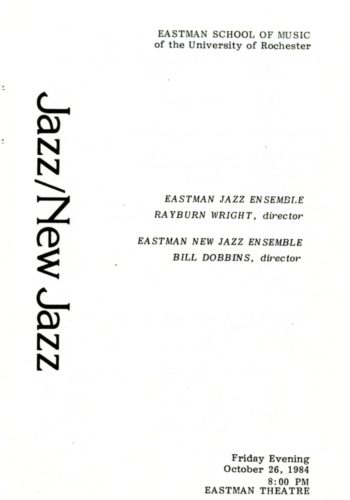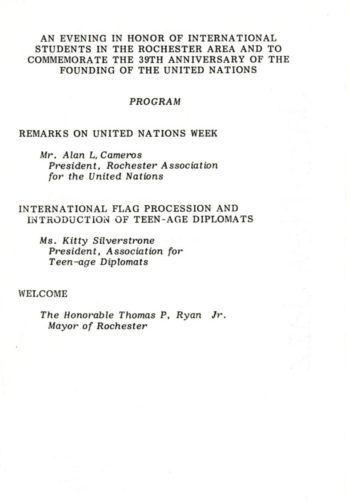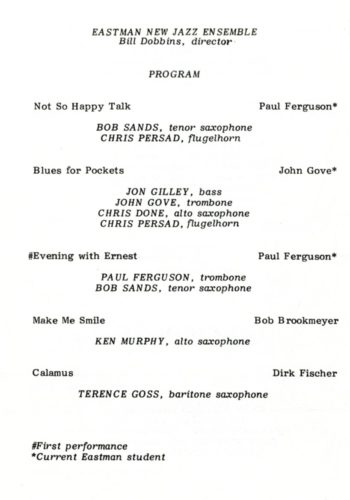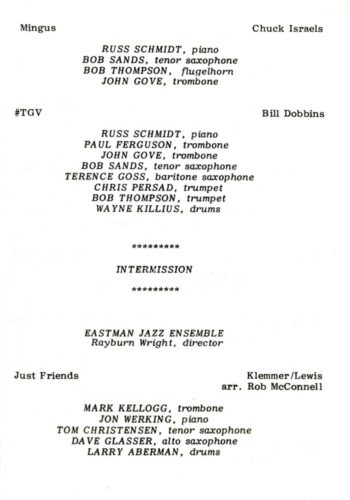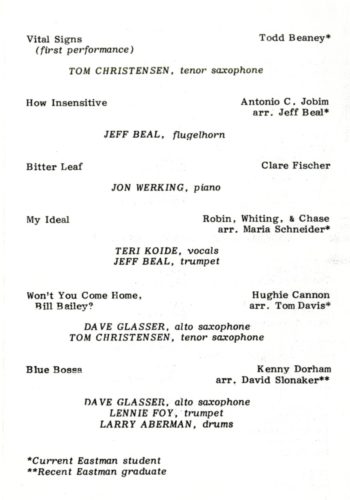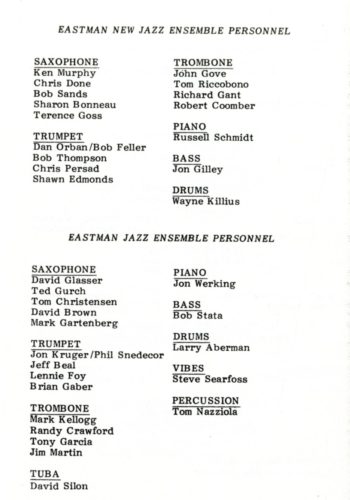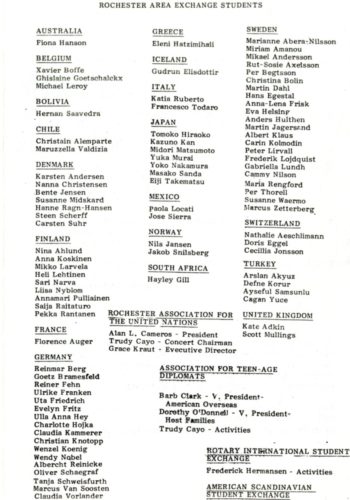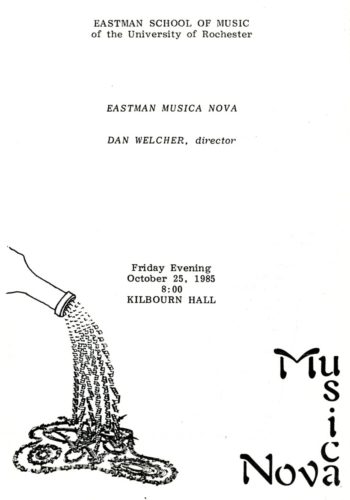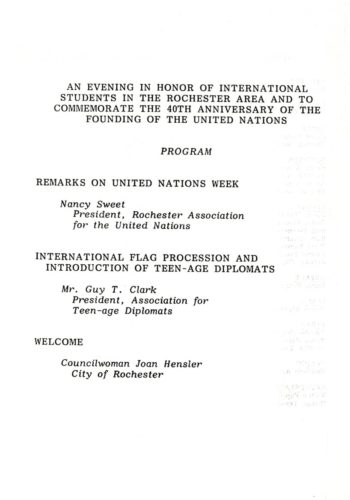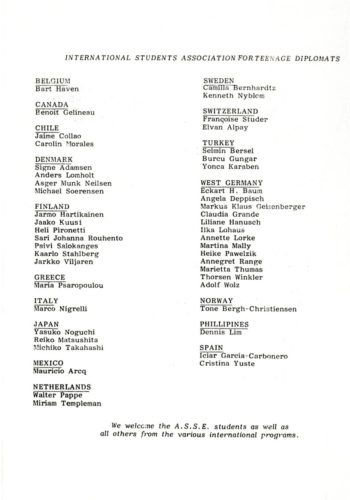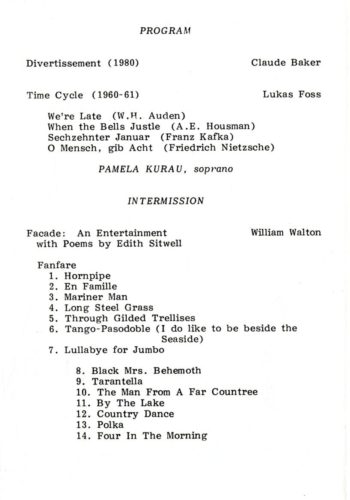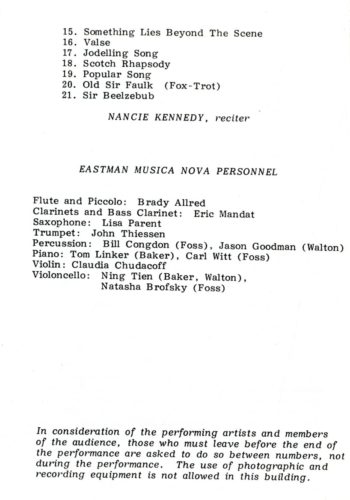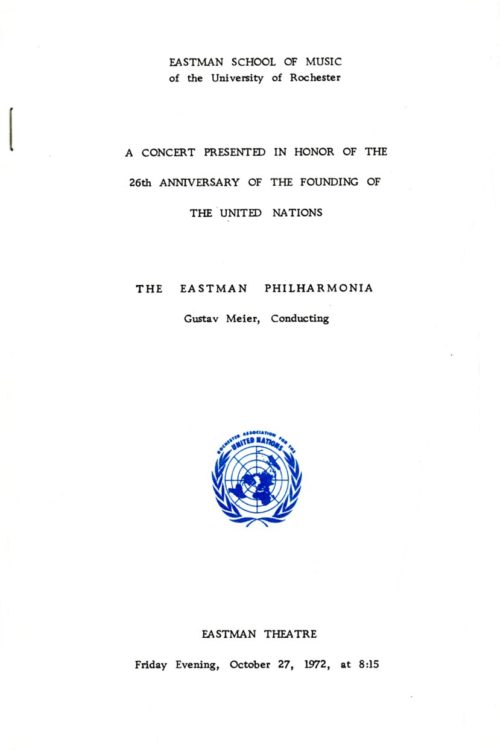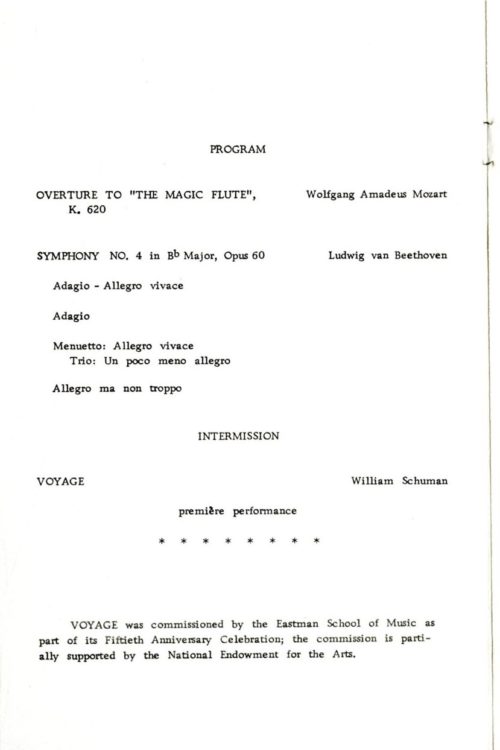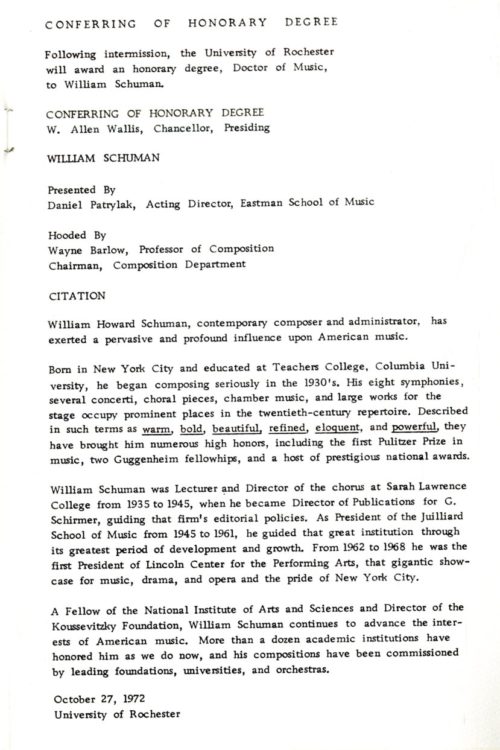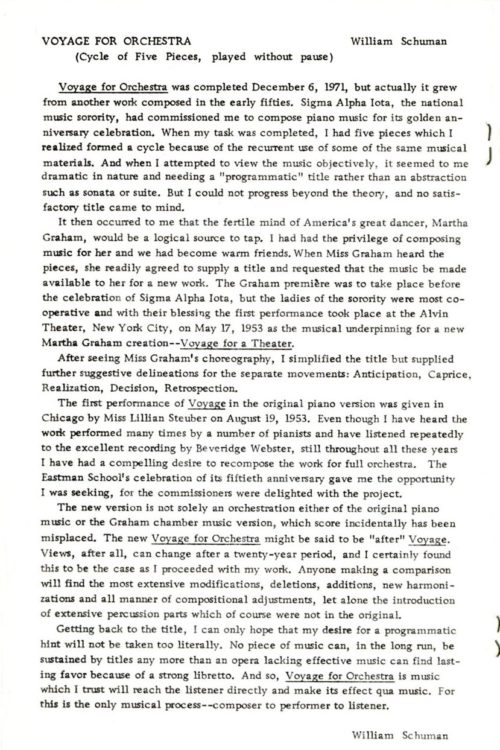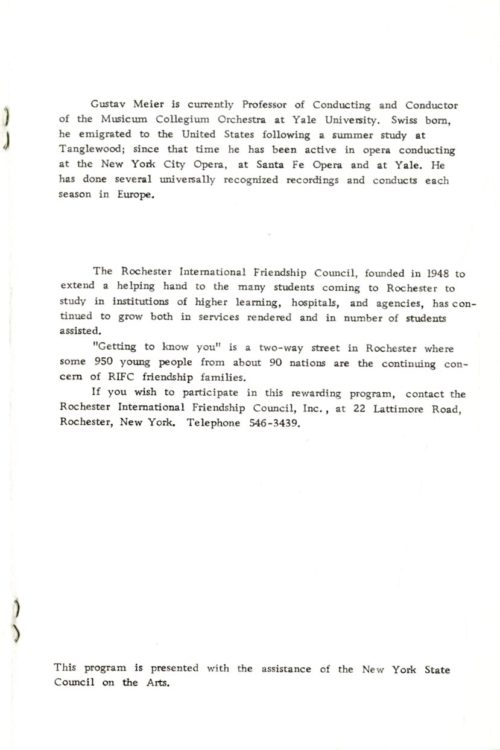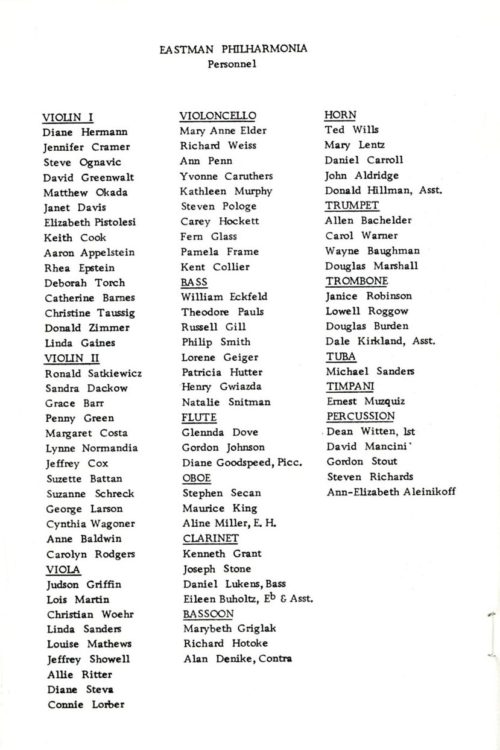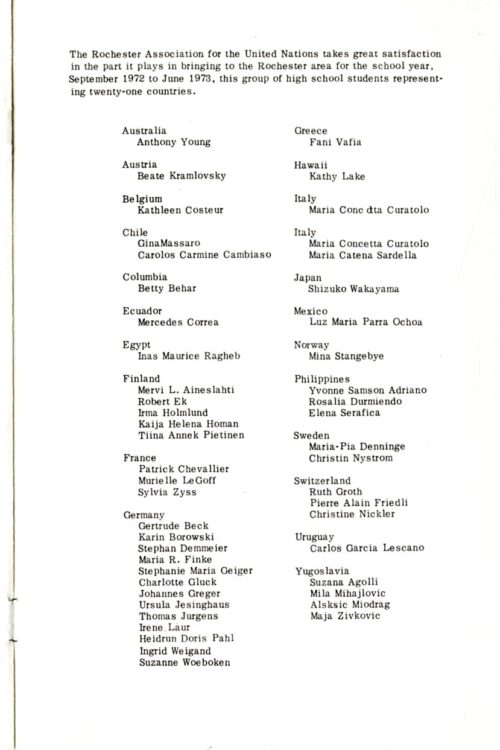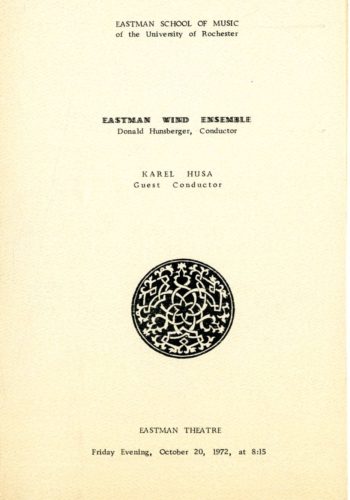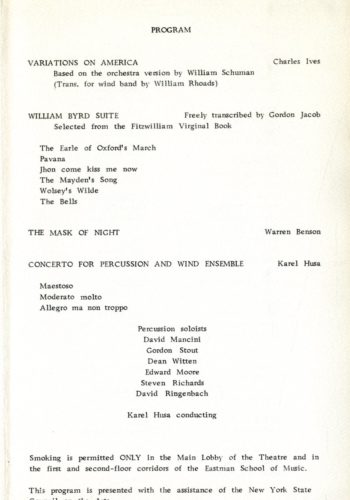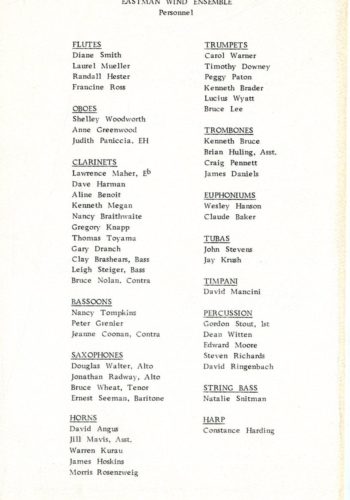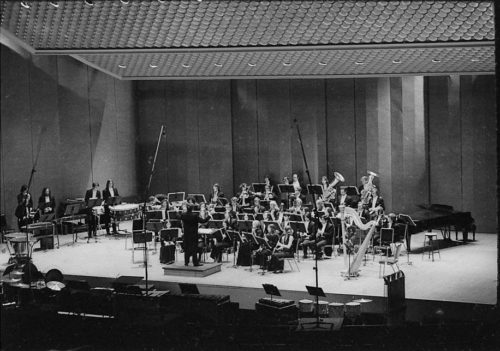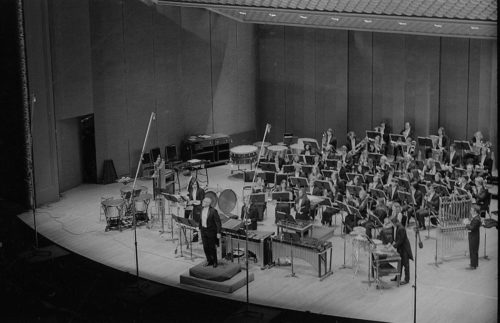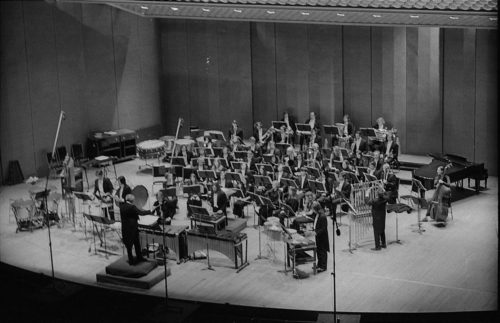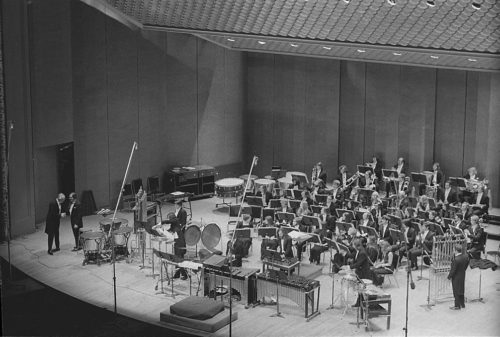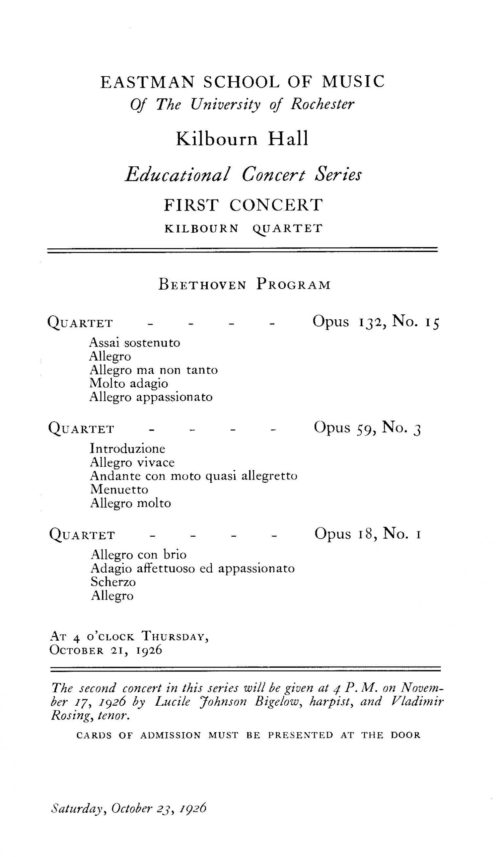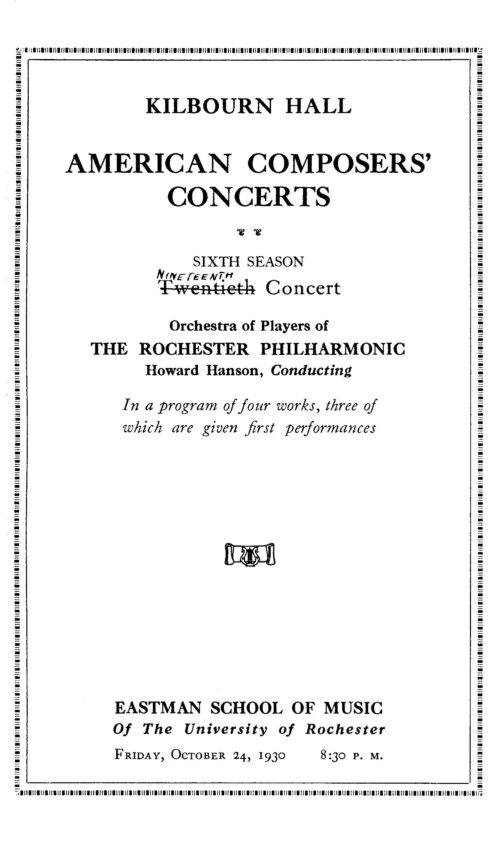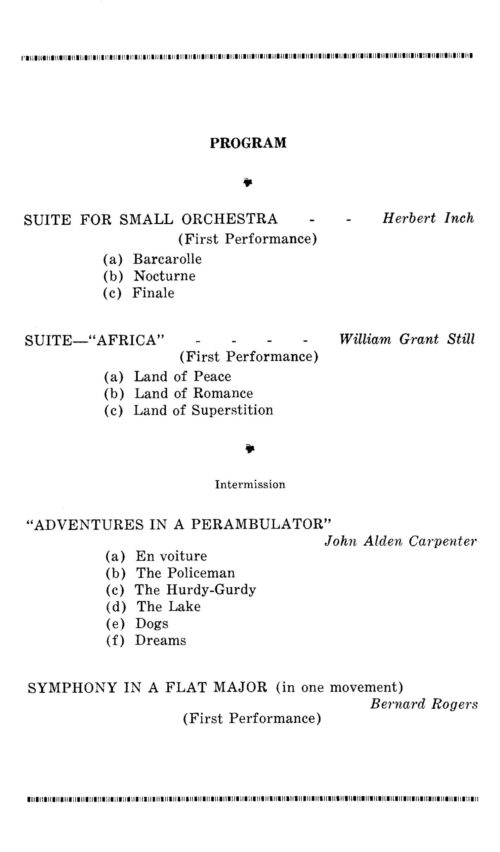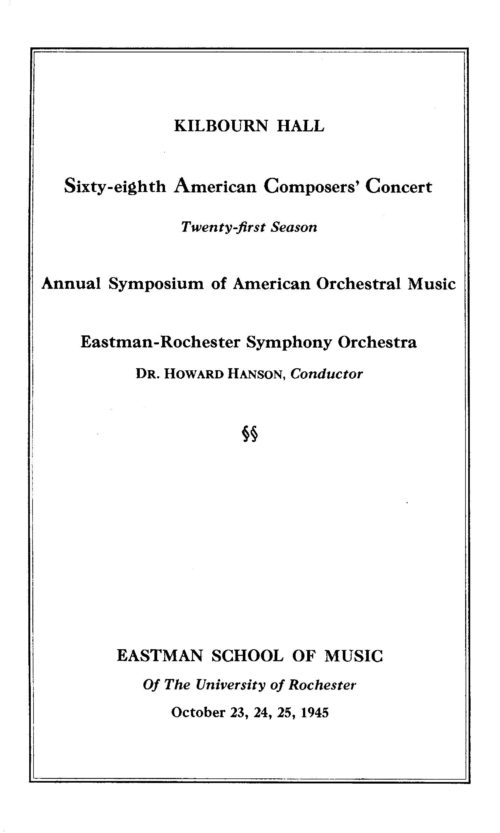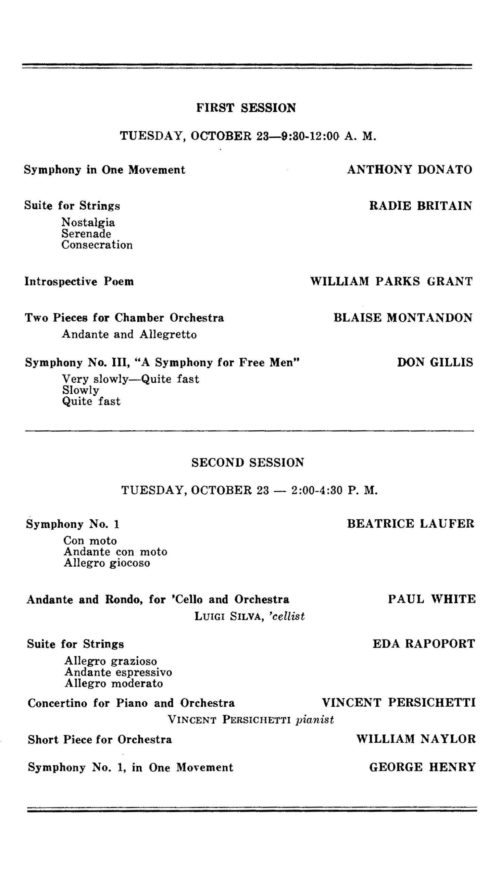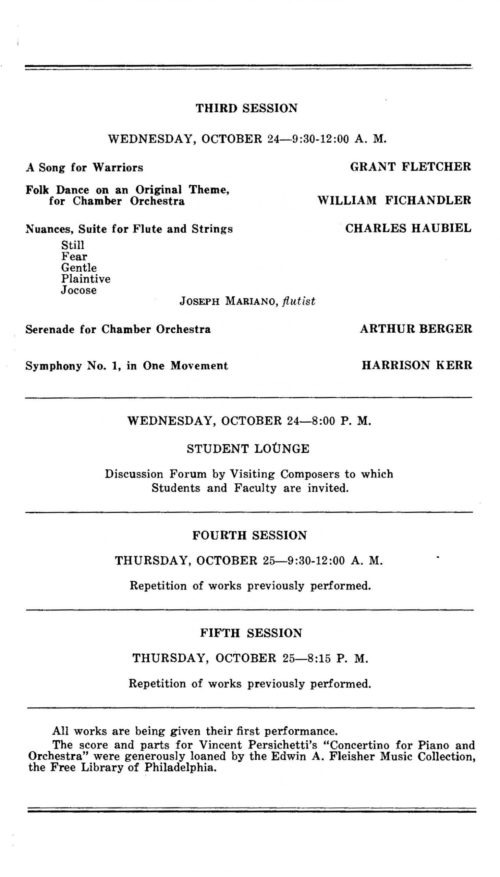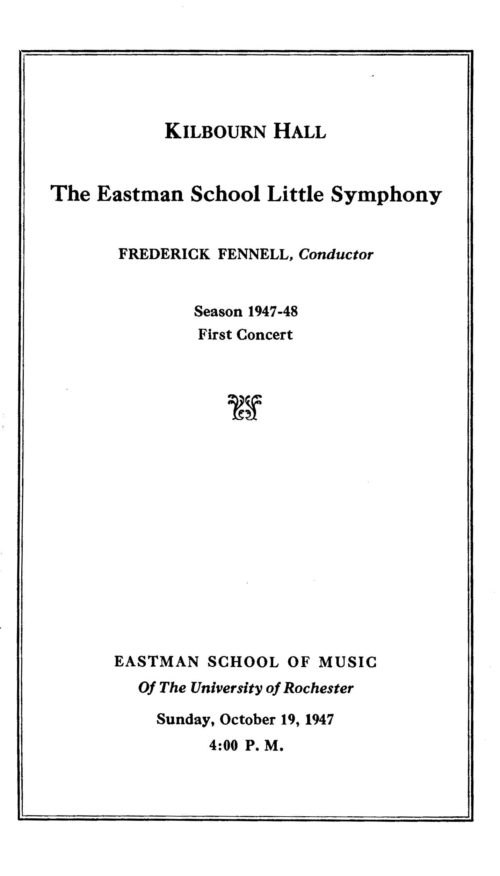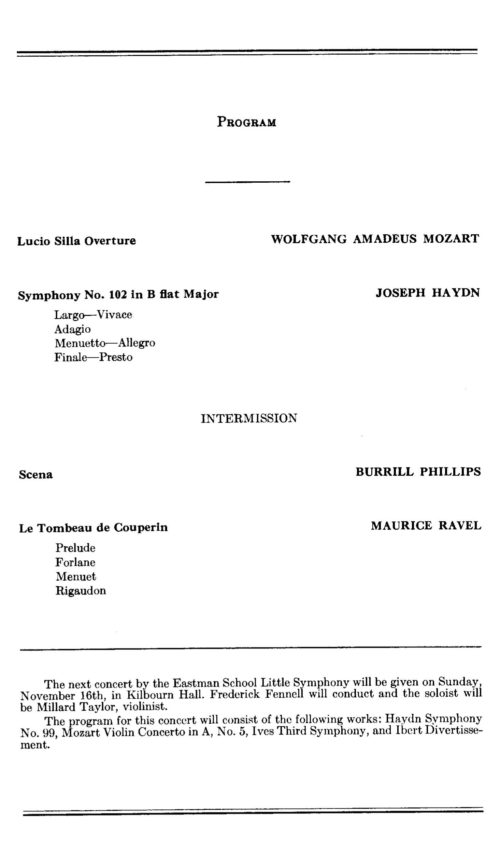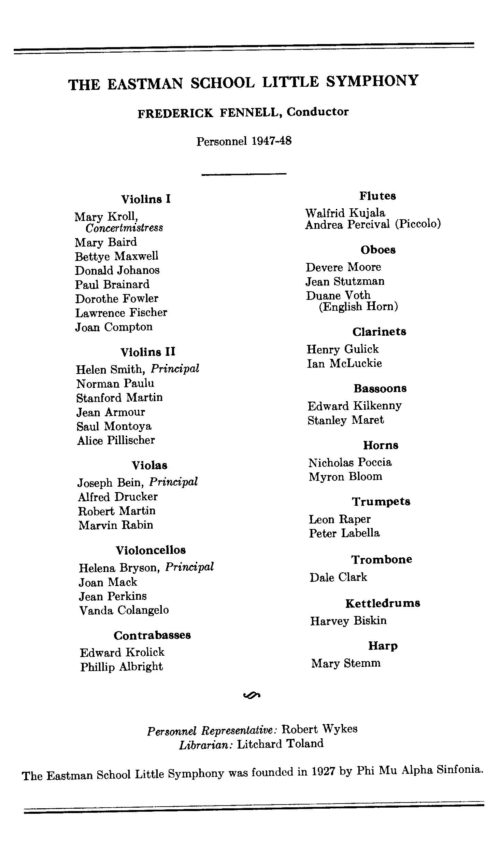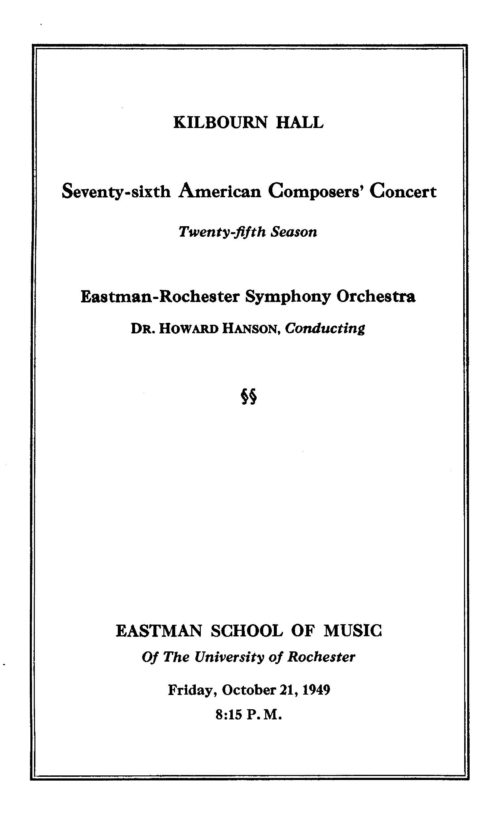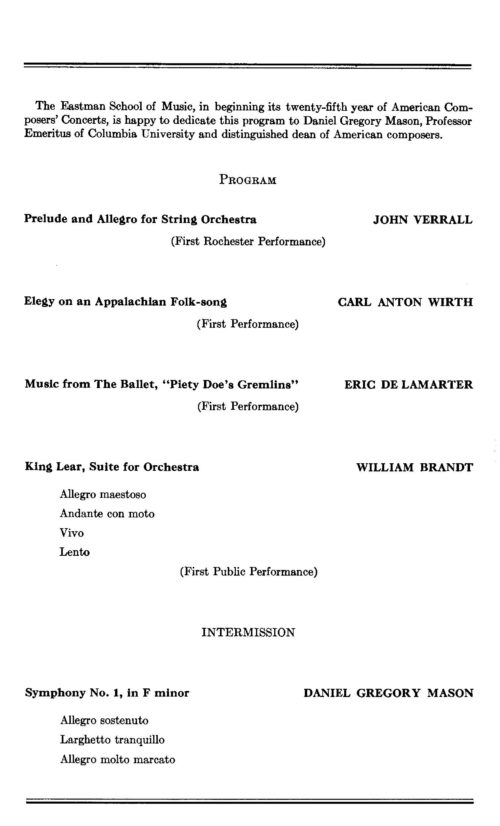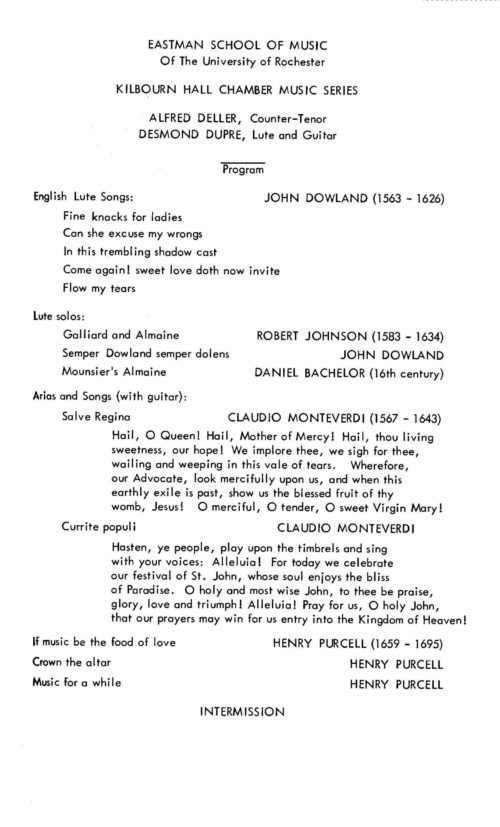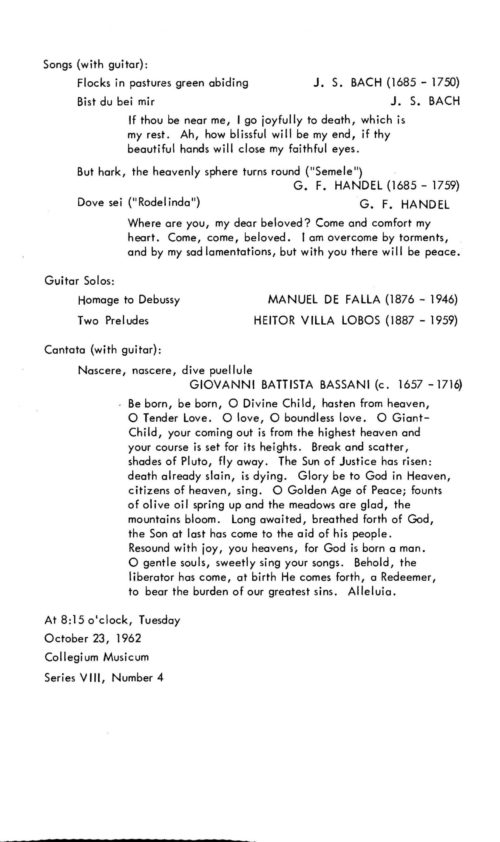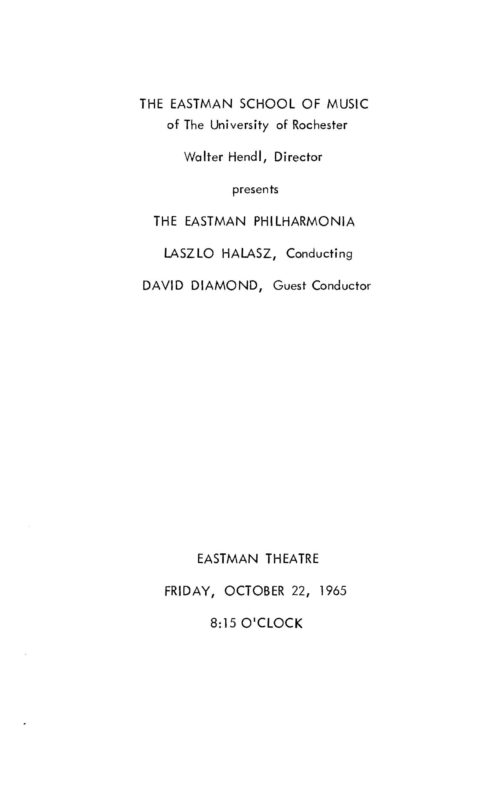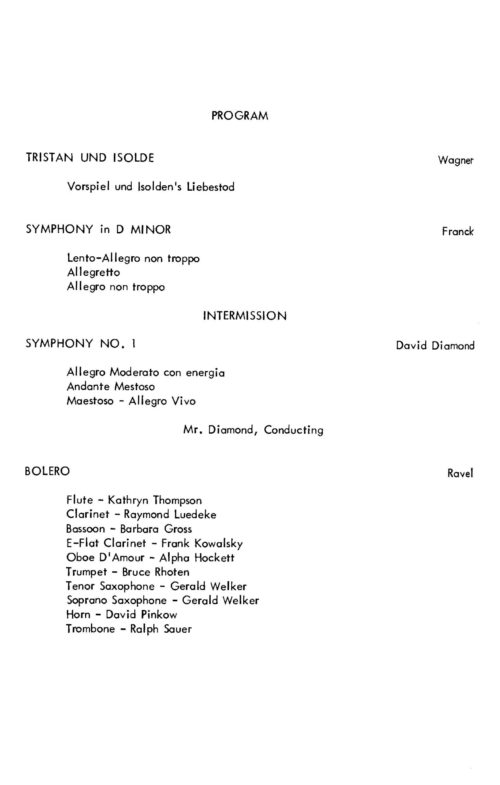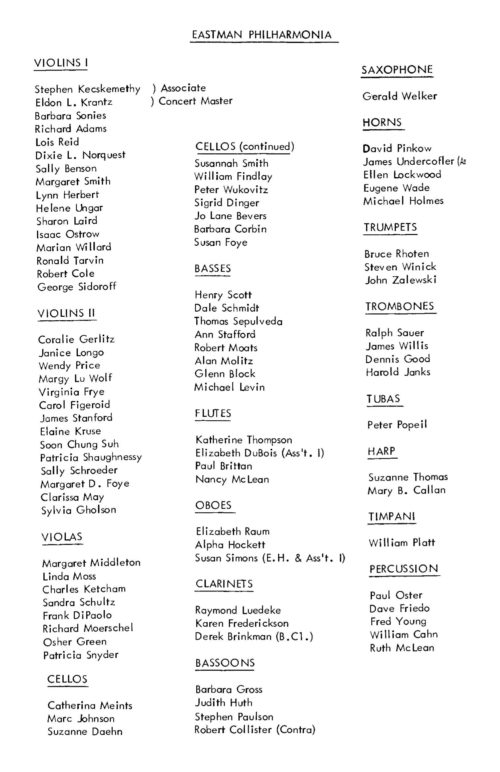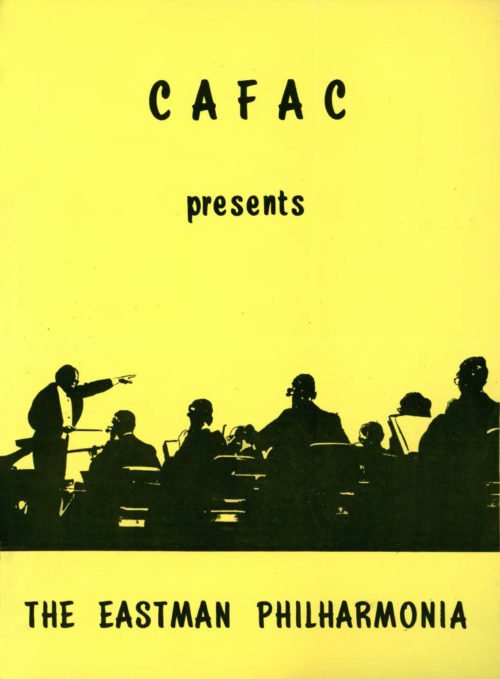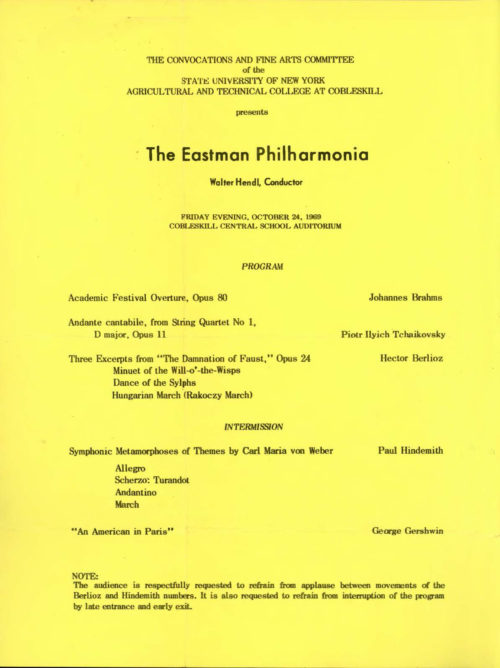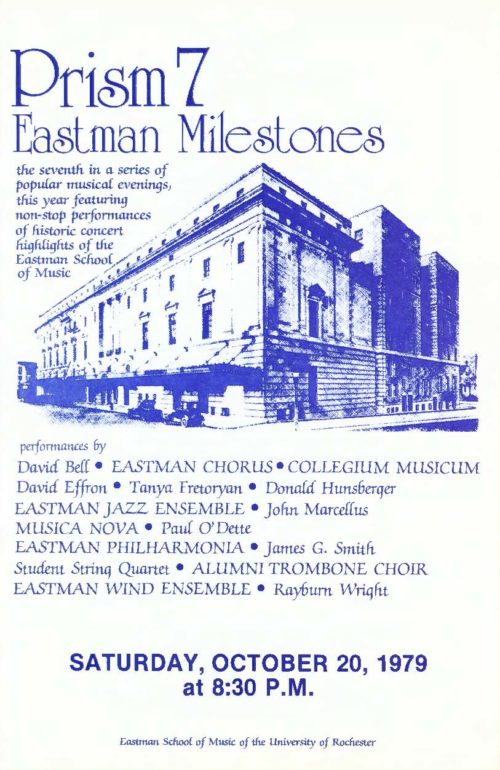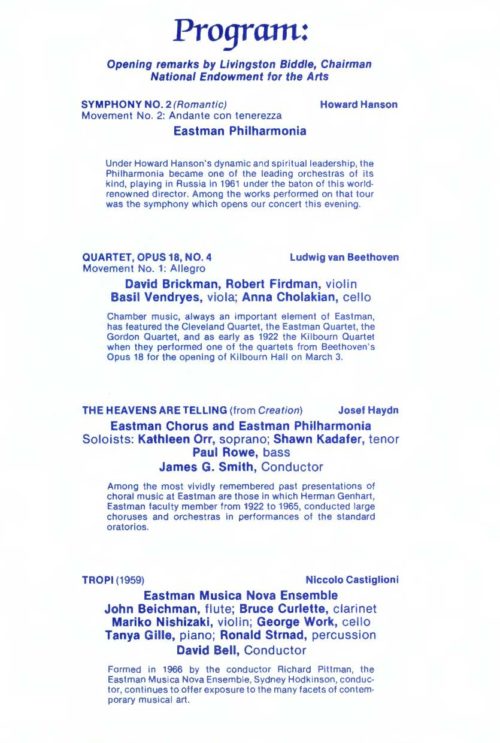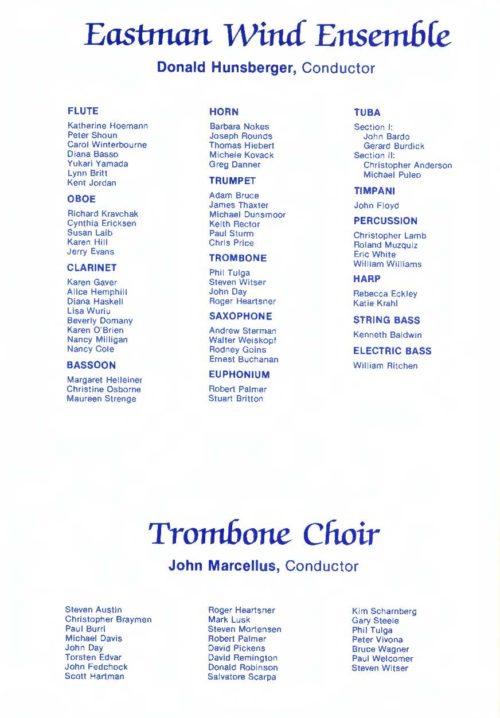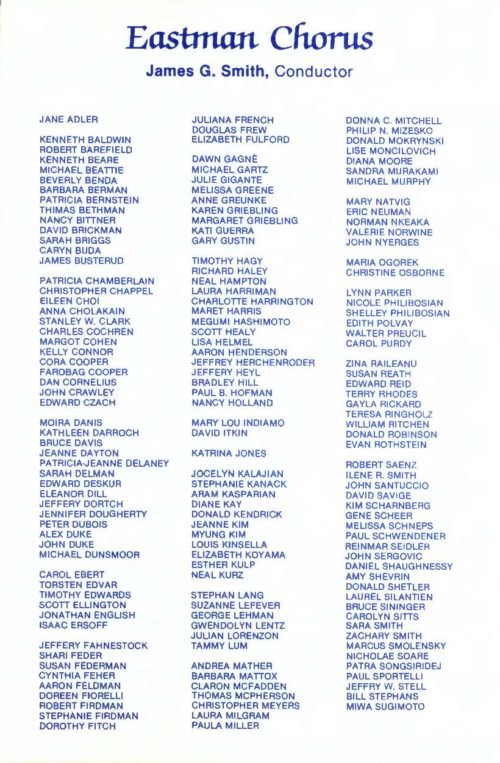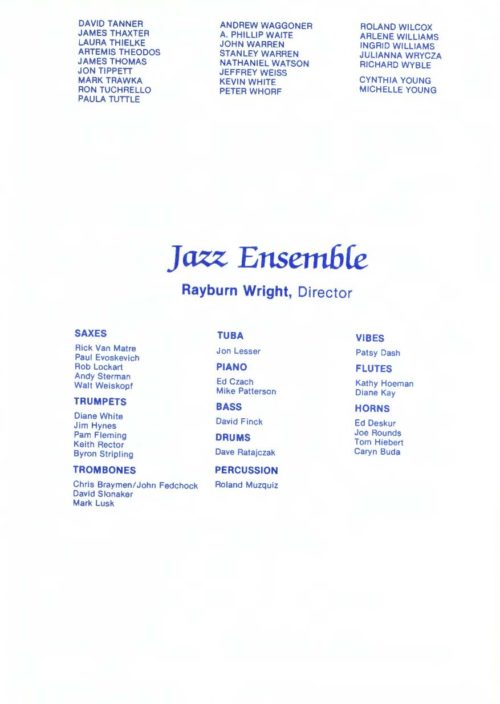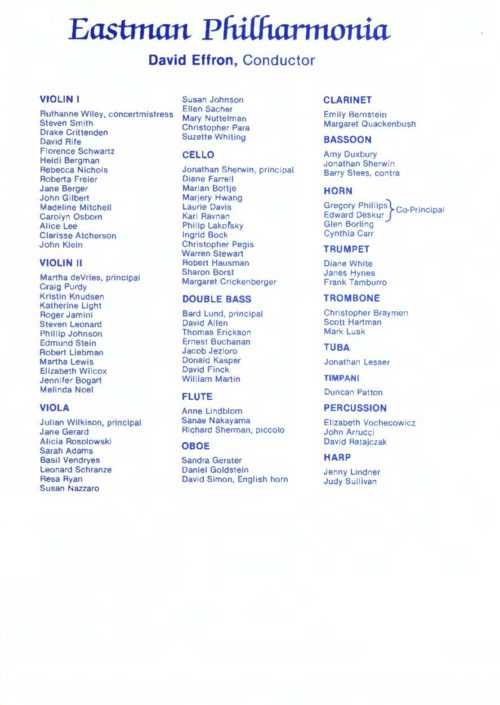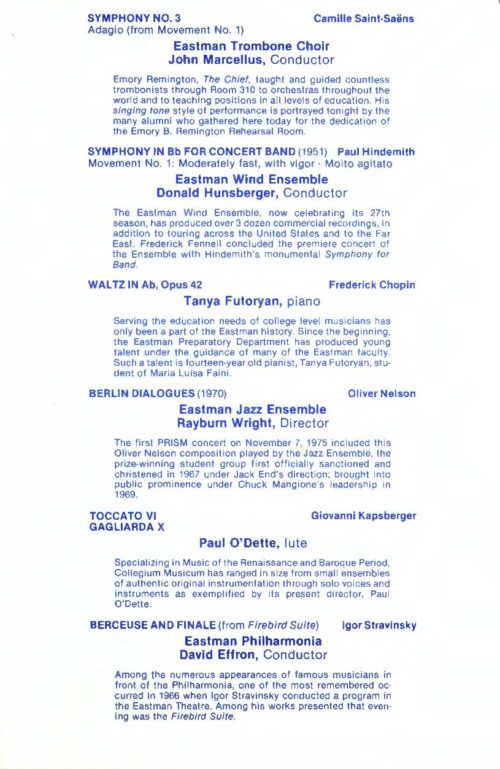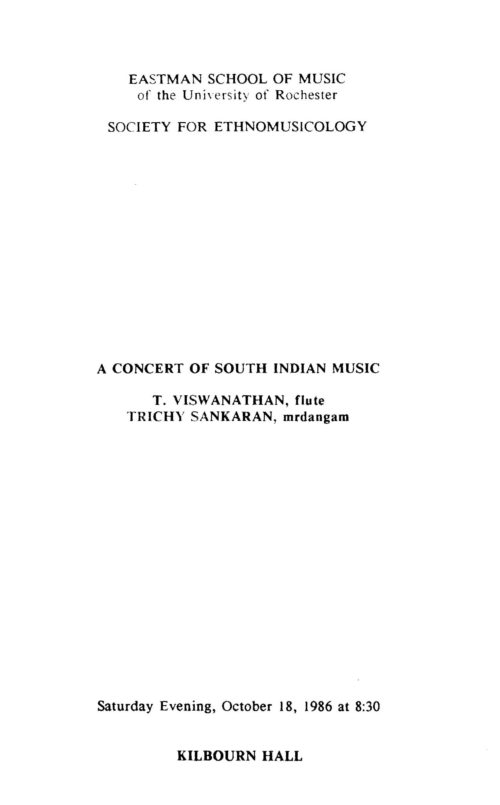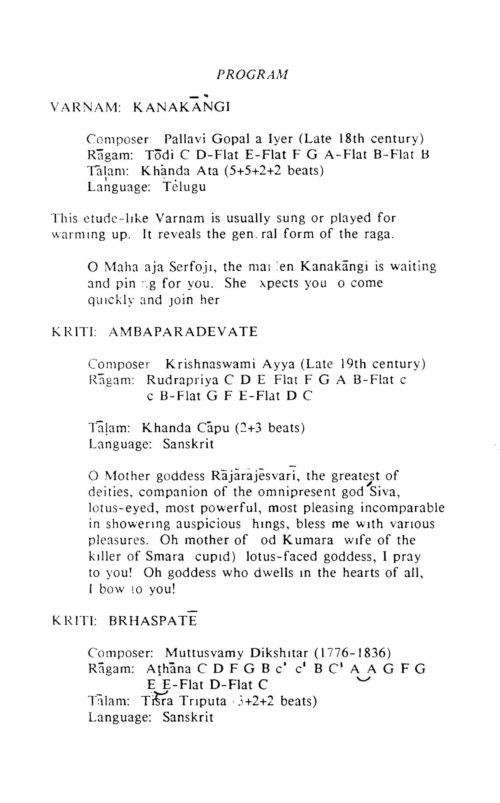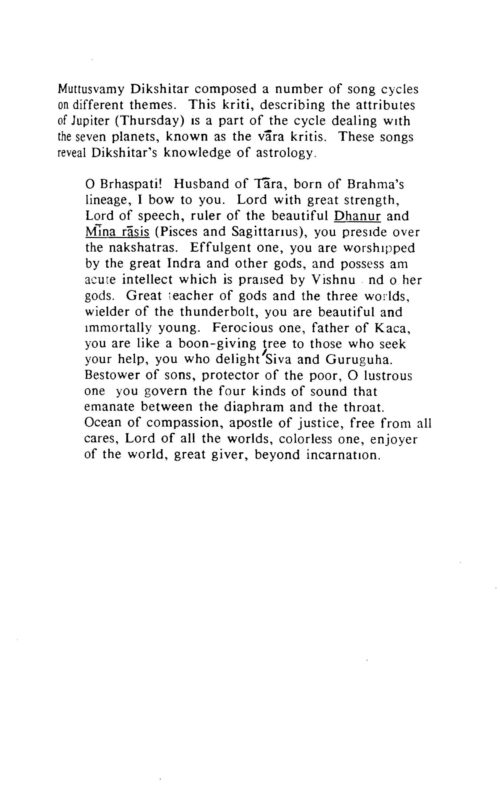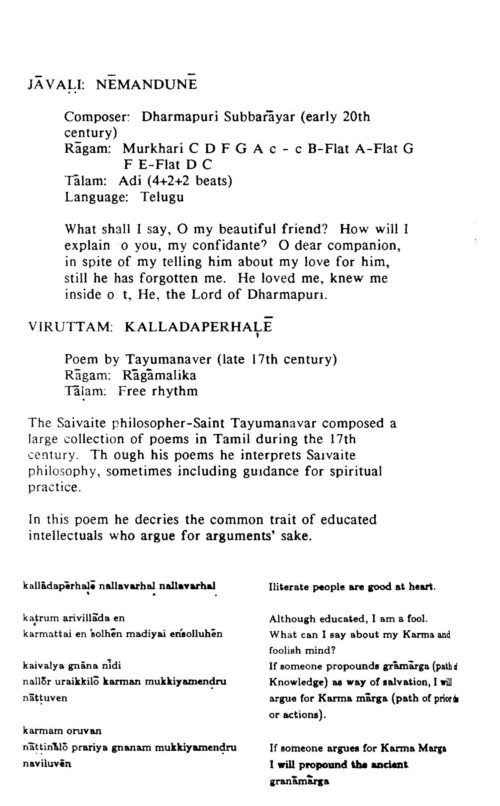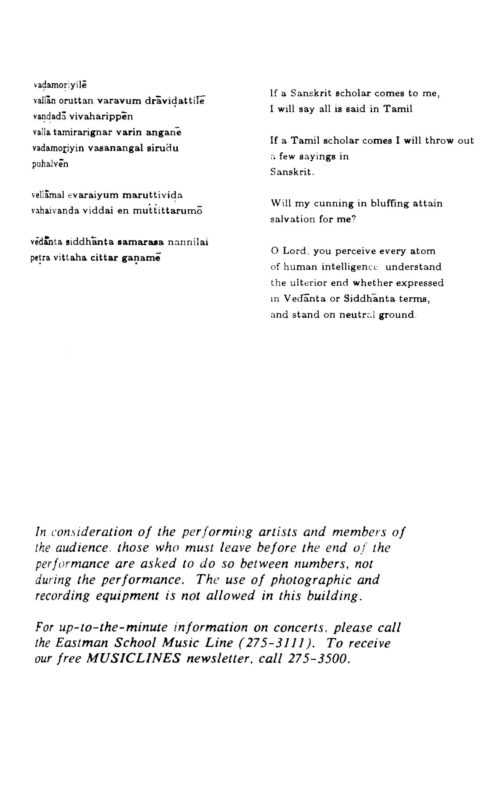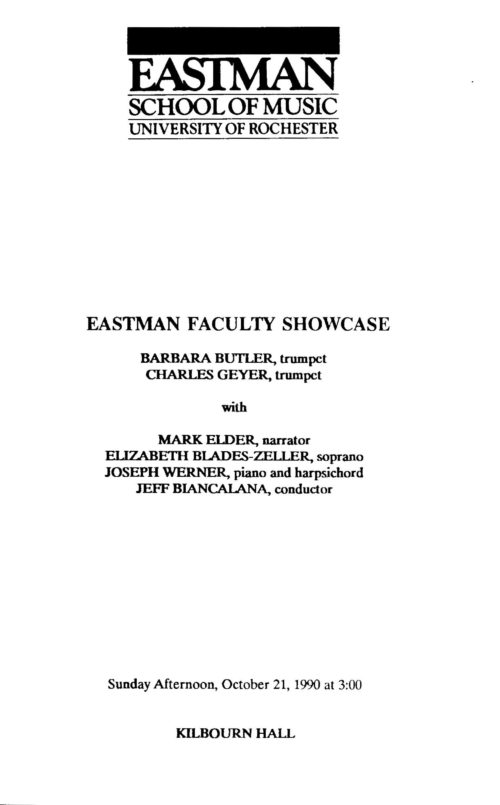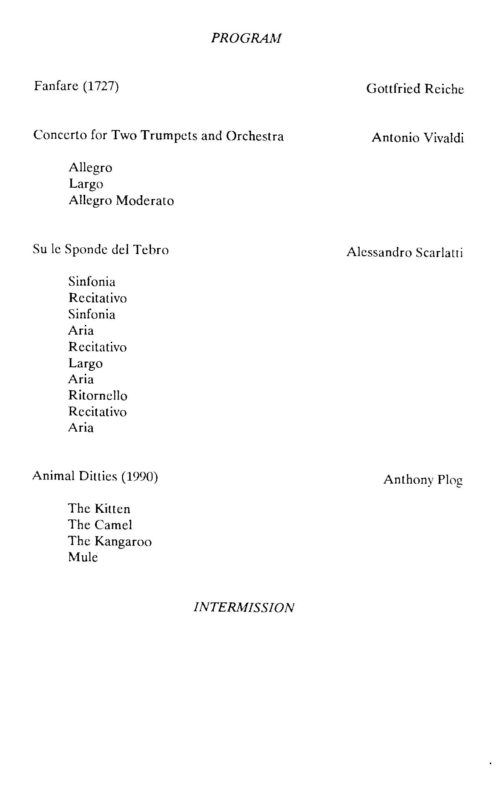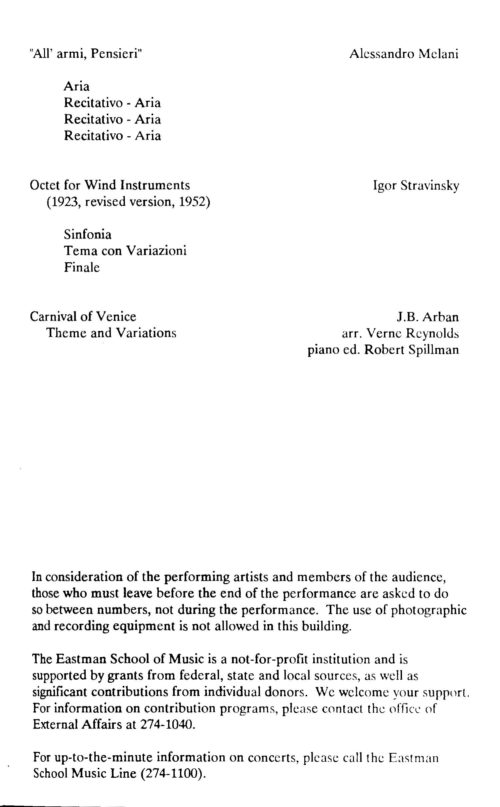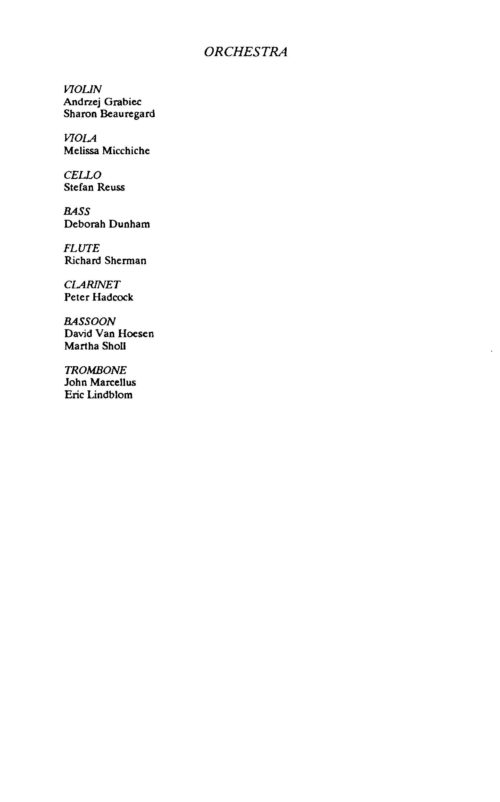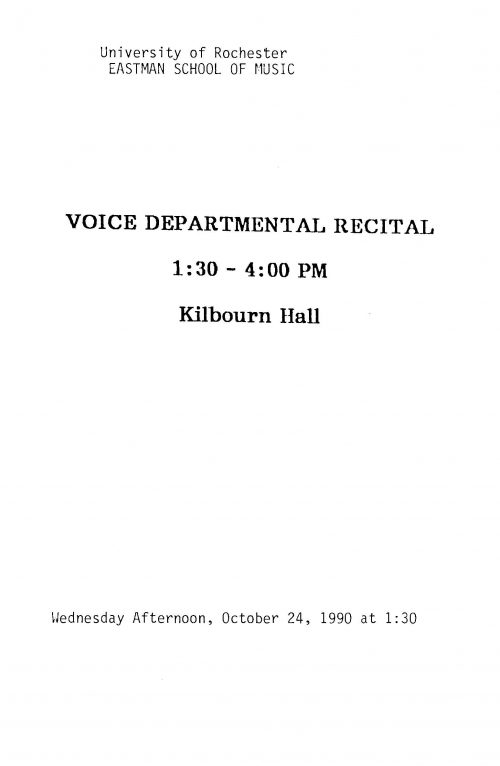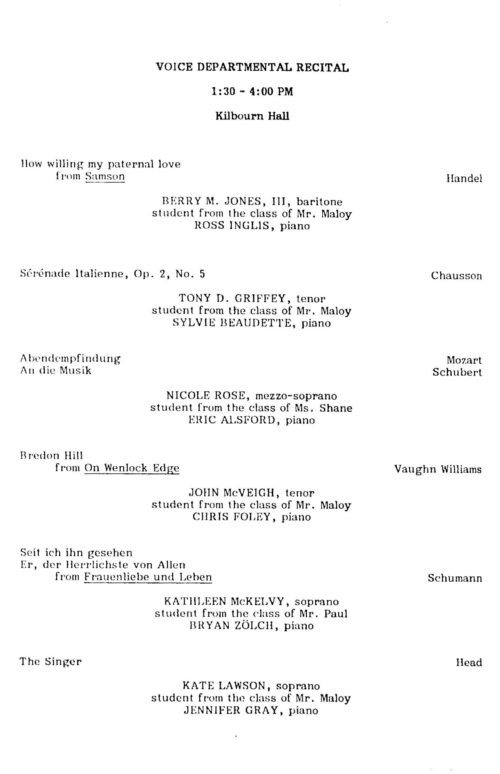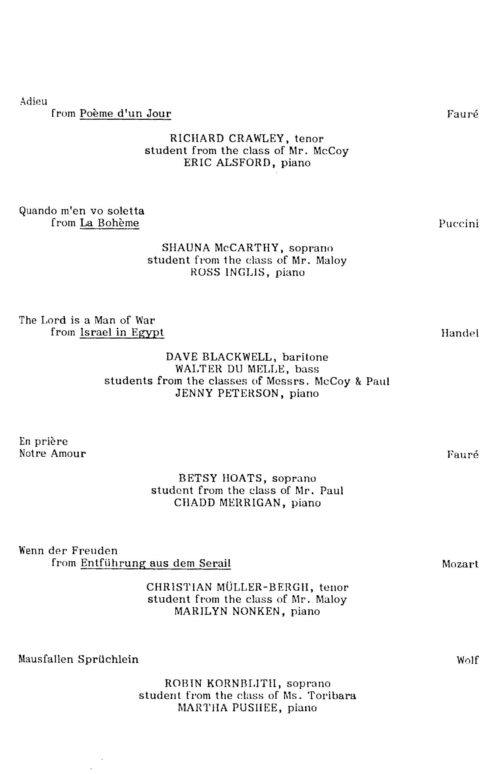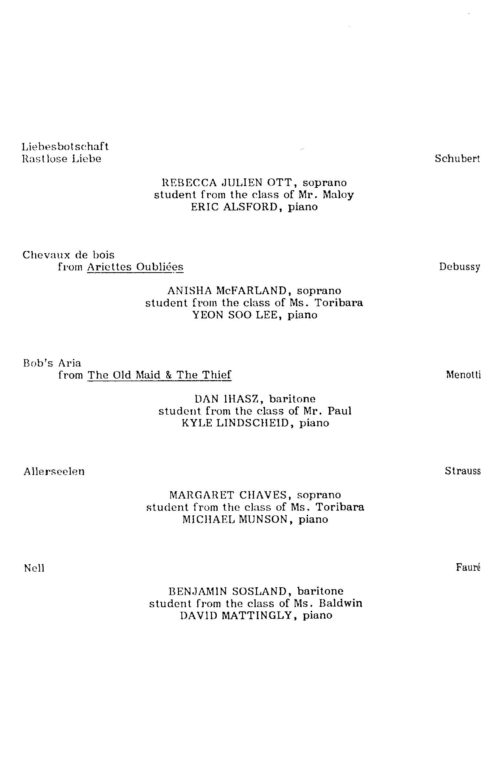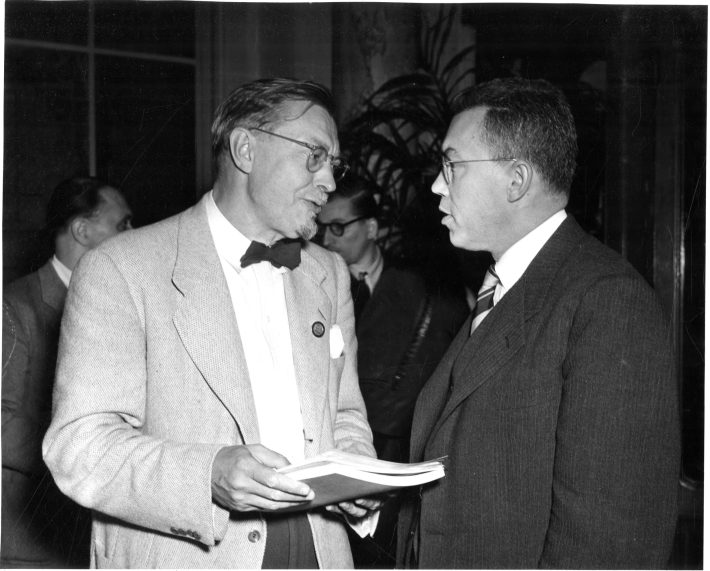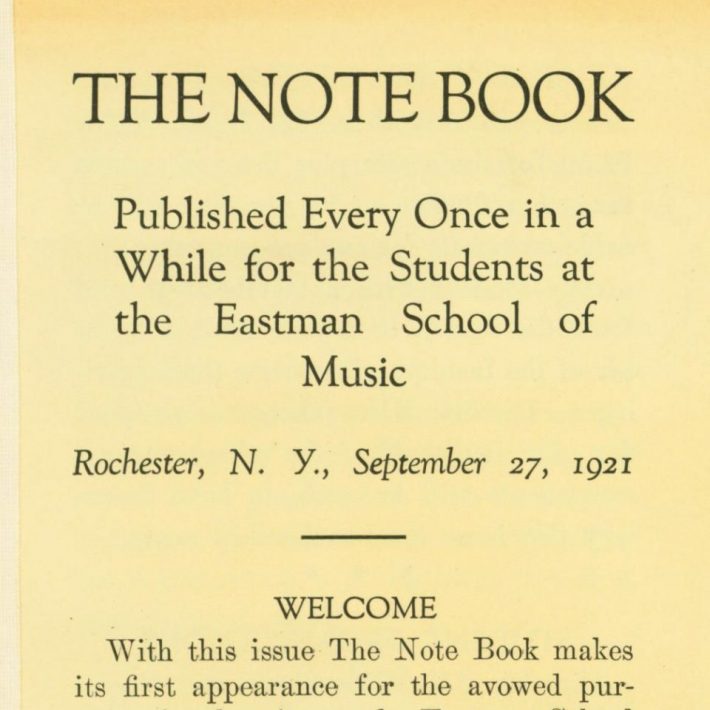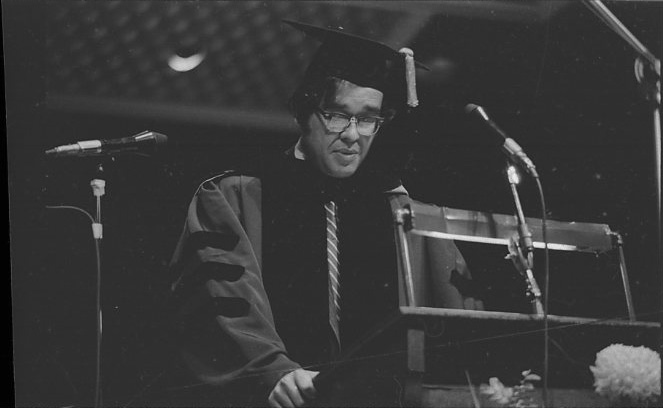Published on Oct 18th, 2021
1970: United Nations Concert at Eastman
51 years ago this week, on October 23rd, 1970, ESM Director Walter Hendl conducted the Eastman Philharmonia in what had by then become an annual event at Eastman: a United Nations Concert, given in observance of the October 24th anniversary of the founding of the United Nations. (October 24th, 1945 was the day when the United Nations Charter entered into force, effectively marking the U.N.’s founding. For that reason, October 24th is recognized around the world as United Nations Day.) In the October 23rd concert, Eastman students Joseph Bias (baritone) and Paul Hoffman (pianist) were soloists with the Philharmonia. At the concert’s intermission, international students of high school age who were studying in Rochester were presented and recognized.
►images: 1970 concert program
For three decades (1958-1989), the Eastman School collaborated with the Rochester Association for the United Nations (RAUN; today known as the United Nations Association of Rochester, or UNAR) in observing the anniversary of the U.N.’s founding, and also to recognize the international students of high school age who were studying in Rochester in any given year. Not every one of the U. N. Concerts took place on October 24th, but those that did not were certainly given within a week of the anniversary. Initially, the annual concert took the form of a full-length program by an Eastman School ensemble punctuated by an intermission ceremony featuring spoken remarks by the RAUN President and by other dignitaries (including, in some years, the Mayor of Rochester), followed by a procession with flags, after which the international students —formally saluted as “teen-age diplomats” —were assembled on-stage to be acknowledged. Beginning in 1965, the teen-age diplomats’ names were printed in the concert program.
►images: 1958 concert program
►images: 1965 concert program
Over the years, the wording in the promotion of the concerts varied. Between 1958 and 1969, the concerts were explicitly promoted as being a joint presentation of the Eastman School and RAUN. It was at the 1963 concert that the recognition of international students was introduced, and this would be an integral part of each concert thereafter. In 1970 and 1971, the concerts were promoted as part of overall celebrations of United Nations Week in both years. From 1972 until 1975, the concerts were promoted as having been presented in honor of the anniversary of the U.N.’s founding, but from 1976 onwards, they were promoted as having an explicit dual purpose: first, the acknowledgement of international students in the Rochester area, and second, the commemoration of the anniversary of the U.N.’s founding. From 1980 onwards, the terminology was changed from “concert” to “An evening in honor of international students,” whereby the commemoration/recognition segment was placed at the beginning of a regularly scheduled Eastman School event, whether an ensemble concert or an operatic production.
►images: 1980 concert program
►images: 1984 concert program
►images: 1985 concert program
For at least the first twelve years (1958-1970), the annual U.N. concerts were broadcast locally over radio stations WHAM and WHEC; afterwards, tapes of the concerts were made available for re-broadcasting overseas over Voice of America. In this way, the Eastman School was an active participant in an international endeavor sponsored by the U. S. State Department, and the performances of Eastman School ensembles were being heard around the world.
►images: 1972 concert program
Throughout those three decades, the U. N. Concerts were a visible and importantinstance of the Eastman School reaching out to, and joining hands with, the Rochester community. Further, the broadcasting of the concerts to populations around the world via Voice of America represented a significant participation by the Eastman School in one of the U. S. Government’s most influential international outreach endeavors. Moreover, three of the U. N. Concerts were occasions of note for the Eastman School. The 1958 concert marked the public debut of the Eastman Philharmonia. The 1969 concert was the occasion of the Rochester premiere of Karel Husa’s Music for Prague 1968. The 1972 concert was noteworthy in that it was the occasion of the world premiere performance of William Schuman’s orchestral composition Voyage, which had been commissioned by the Eastman School of Music as part of the school’s 50th anniversary celebration. The recognition ceremony in that evening’s concert included not only the acknowledgement of international students, but also the conferral of an honorary Doctor of Music degree on Mr. Schuman, at which U of R Chancellor W. Allen Wallis presided.
The concerts were duly covered by the local media in addition to the radio broadcasts. In two different academic years, the U. N. Concert was profiled in a two-page spread in those years’ respective yearbooks (1969-70 and 1971-72). (All of Eastman’s yearbooks may be accessed online at the U of R Libraries Digital Collections site.
Further on the subject of the United Nations and Eastman, it is appropriate to mention that ESM Director Howard Hanson served for several years as chairman of the Panel on Music on the U.S. National Commission for the United Nations Educational, Scientific, and Cultural Organization (UNESCO), founded in November, 1945, to which he had been was appointed very early on by U.S. Secretary of State Dean Acheson. Hanson’s involvement in that capacity will be covered in a future entry of “This Week at Eastman”. The Howard Hanson Collection at the Sibley Music Library contains a substantive extent of documentation, and also some photographs, attesting to Hanson’s UNESCO involvement.
1972: Karel Husa guest appearance at Eastman
Forty-nine years ago this week, on October 20th, 1972, composer-conductor Karel Husa (1921-2016) made another guest appearance at Eastman. On this occasion he was guest conductor of the Eastman Wind Ensemble in a performance of his own Concerto for Percussion and Wind Ensemble. Professor Husa, originally Czech-born and serving since 1954 on the faculty of Cornell University, had by this time established himself in the front rank of composers. A prolific composer who wrote in all genres, he had been awarded the Pulitzer Prize in Music for his String Quartet no. 3, which he composed on a commission from the Fine Arts Quartet. His Music for Prague 1968, embodying his musical response to the Soviet invasion of his homeland in August, 1968, had quickly become an international success. Professor Husa had made a visit to Eastman in October, 1969 when the Eastman Wind Ensemble had given the Rochester premiere of Music for Prague 1968.
Karel Husa was by this time a highly esteemed friend of the Eastman School of Music. In April, 1972, during the Eastman School’s 50th anniversary season, Frederick Fennell had conducted the EWE in a performance of Husa’s Apotheosis of this Earth, one of the highly publicized commemorative concerts during that jubilee year. Professor Husa’s music would remain permanently in the EWE’s repertory. In November, 2016, the Eastman School received a generous gift when the Eastman School’s Sibley Music Library received the Karel Husa Archive, by way of a transfer from Ithaca College, shortly before Professor Husa died. The extensive collection embodies Mr. Husa’s legacy in music manuscripts and personal papers.
►images: 1972 concert program, photos by Louis Ouzer


